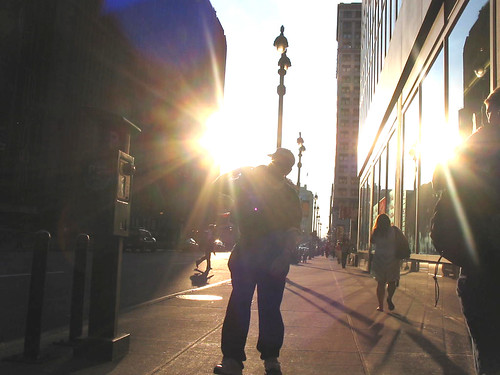
the lost man chronicles
just like Keanu .52

"I mean really wonderful. In teaching. Personal epiphanies. About life. About different perspectives—help with different perspectives that you have. You know what I mean? Relationships to nature. Relationships with the self. With other people. With events."
~ Keanu Reeves on drug use, Vanity Fair, February 2001"Whoa!"
The revelation made me feel just like Keanu (poor Keanu).
I was walking down the street, just admiring the way the half-dozen green, yellow, white and red lights reflected beautifully in the distance and upon the street, when suddenly—it hit me.
The streets were wet and it was lightly sprinkling, so visibility was better than normal, especially since it was still quite dark, and thus the lights all lit up like far-away fireflies.
Their reflections upon the pavement stretched for blocks and that alone impressed me. And then I noticed that there was a limit as to the distance that the light streaks traveled. I asked myself, "I wonder what determines the distance?" As I continued to walk I came across my answer—I do.
My best guess is that it has something to do with Don E. and his general theory of relativity, because logically I could not explain why the projected distance changed as I walked toward the source of lumination.
One would think that light traveling through space is constant, and unless interrupted, will travel infinitely, with its strength gradually weakening along the way.
After all, when you stand behind a flashlight and point it at a wall the spot does not disappear as you move to or fro from it, certainly the intensity diminishes, but the blurry circle of light is still there.
Yet, here I was, a mere human, strolling along and the point at which the strip of light stretched shortened as the distance between myself and the source decreased.
That experience, in and of itself, enlightened me as to how relative our perspectives truly are.
There probably is a rather mundane and simple explanation for all this. After all, I forewent physics to read Joyce's Ulysses instead, and was rightly propelled along my due course. Thus, the empirical answers that everyone else seems to already know, will often be news to me.
And quite frankly, I am glad to have forgone the rigueur of basic science, because I am discovering it all on my own now. And by being aware and interacting with both the man-made environment and nature, the discovery of these already known physical truths have a greater personal impact upon me than all the scholastic facts I have already forgotten. The world is my classroom and I am life's humble student.
"We don't see things as they are. We see things as we are." ~ Anais NinEpilogue: I found it quite amusing that my immediate inclination was to place the onus of the perceived change in distance upon the source (i.e. the light)—thinking "there must be some law governing light that explains the phenomena." When in fact, the answer probably lies with in my self. For perhaps it is an inherent perceptual limit that changes things, and not the thing itself that changes.
I would surmise that it is an optical blindspot of sorts which does not allow me to ever connect with the constant stream of light. The photons from the light actually hits me all the same, more intensely in fact as I get closer, but I simply do not posses the power to see this.
Then again, could it be a matter of cause and effect? Meaning, the laws governing the phenomena lies within the interaction between me and the light itself, and not inherently within either end of the bargain. Or maybe, it is a matter of the cumulative laws overruling all three?
Yikes. And it all seemed so simple in the beginning.
"In the beginning God created heaven and the earth.
Now the earth was a formless void, there was darkness over the deep,
and God's spirit over the water.
God said, 'Let there be light,'
and there was light."
~ Genesis 1:1-3
the microcosmos .51 

53. my optic euphony